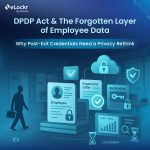Starting a new job can be both exciting and intimidating at the same time. As you prepare to join a new organization and a new team, you may be tempted to conceal some information from your employer, hoping that it will not impact your chances of getting hired or advancing in your career. However, hiding crucial information can lead to harmful consequences damaging your professional reputation and relationships as the employers possess tools to find out the truth. Let’s find out the risks you get exposed to by concealing crucial information from the employer and how transparency can pave the way for a more progressive career development path.
Risks of Hiding the Information
Below are some of the significant risks associated with hiding information:
- Background Checks Can Unwrap Hidden Truths: Background Checks are the standard part of the hiring process, and they can reveal information you might have tried to keep hidden. If the discrepancy is found it might result in the termination or revoked job offer. The risks of being caught far outweigh the short-term relief of concealing information.
- Dishonesty Can Damage Professional Reputations and Relationships: When facts are concealed they can erode trust and credibility affecting your relationship with colleagues, superiors and clients. A damaged reputation can follow you throughout your career. Once trust is lost, it can be challenging, if not impossible, to rebuild.
- Omissions Can Lead to Mistrust: Failing to disclose information can raise suspicions and create mistrust. This can impact your ability to work effectively and build strong relationships with your team. When your integrity is questioned due to omissions, it can hinder your ability to work efficiently and even lead to workplace isolation.
- Legal and Financial Repercussions: In some industries, hiding crucial information can have legal and financial consequences. For example, failing to disclose a prior conviction in a financial sector job could lead to regulatory violations and hefty fines for the employer. In such cases, your job is at risk and you could be held personally liable for any damages resulting from your dishonesty.
- Career Growth Stagnation: Hiding crucial information may offer temporary relief, but it can stall your career growth in the long run. Employers value transparency and honesty, and those who exhibit these traits are more likely to be trusted with greater responsibilities and leadership roles. On the other hand, being caught in a lie can label you as untrustworthy, causing your career to stagnate as opportunities for advancement diminish.
Benefits of Transparency
Being transparent in the workplace isn’t just about being honest; it’s about building a foundation of trust and integrity that supports long-term success. Embracing transparency brings numerous benefits that can positively impact your professional relationships and career growth. Here’s how:
- Builds Trust With Your Employer: Honesty brings trust which is essential for a strong working relationship. When your employer knows they can rely on your transparency, it strengthens mutual respect and collaboration, creating a positive work environment.
- Demonstrates Honesty and Integrity: Truthfulness reflects your character showing that you are someone who can be trusted with responsibilities. These traits not only enhance your reputation but also open doors for new opportunities, leadership roles, and long-term career growth.
- Allows Employers to Make Informed Decisions: Openness enables your employer to make informed decisions, accommodating your needs or providing support. By sharing relevant information, you contribute to a more effective and supportive workplace.
- Facilitates Long-Term Professional Growth: Transparency helps in building a solid foundation for ongoing career development and establishing a reputation of reliability and trust.
How to Address Potential Red Flags
If there are aspects of your background that you think could raise concerns, it’s better to address them proactively. For example:
- Be Honest about Gaps in Employment: If you have gaps in your employment history, explain them honestly whether you took a break because of personal reasons etc. Never try to tamper with the official documents for any of the details to cover these gaps.
- Clarify Your Job Roles: If your previous job titles do not convey your responsibilities, take time to clarify what you did in your roles. This can prevent misunderstandings in the background verification process.
- Past Court Cases or Low Credit Score: In case any of the court cases are ongoing or old-settled cases, it’s better to discuss that upfront with the employer. Low credit scores should also be revealed at an early stage of the recruitment process so that the employer is already aware of it.
Modern Solutions: A Game Changer
With the rapid advancement of technology, employers now have access to many sophisticated platforms that can quickly detect discrepancies in the candidate’s background. Solutions like OnGrid and eLockr have streamlined the background verification and digital credential issuance/storage process, leaving little to no room for hidden details to go unnoticed. Being transparent from the outset not only helps you avoid potential pitfalls but also positions you as a trustworthy professional in your industry.





Leave a Reply